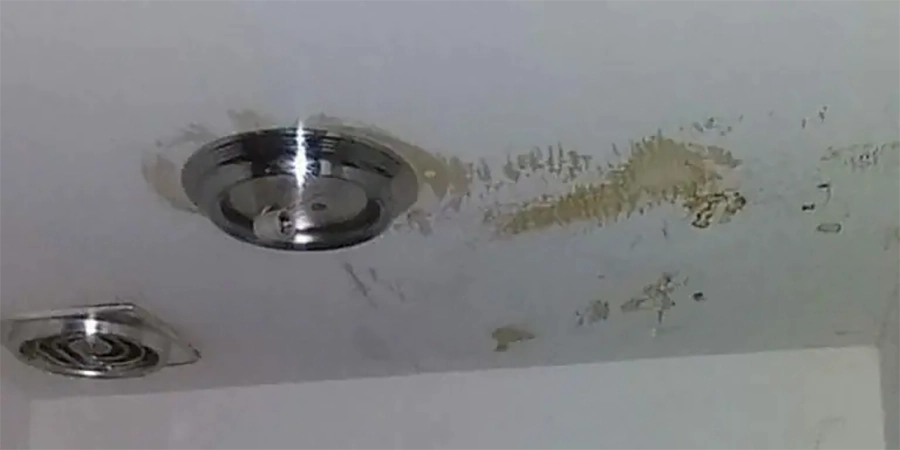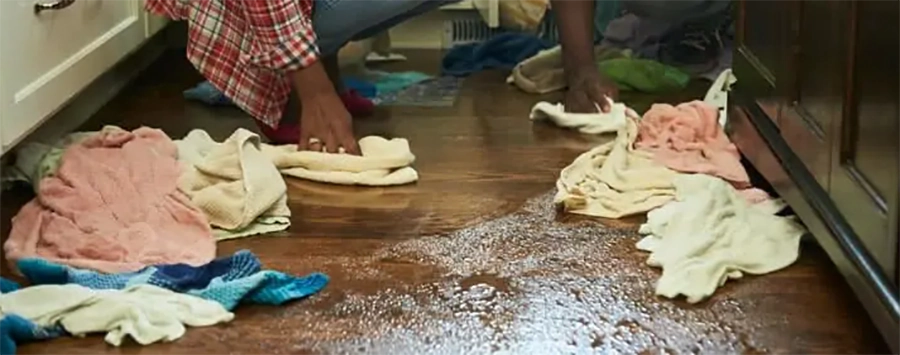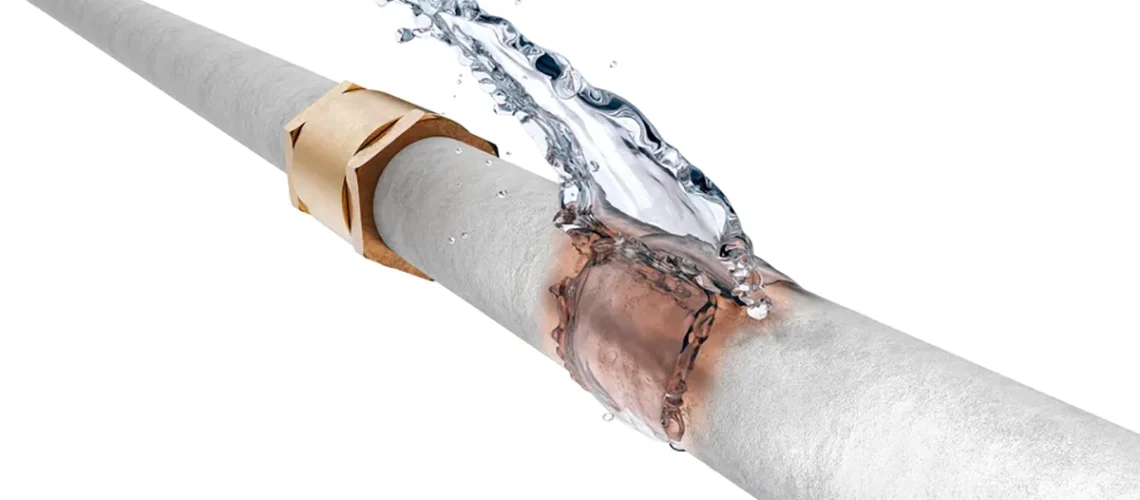A burst water pipe is a homeowner’s nightmare that can lead to significant property damage, expensive repairs, and disruption to daily life. In this comprehensive guide, we’ll explore the importance of addressing burst pipes promptly, delve into the causes of pipe bursts, highlight the signs that indicate a burst pipe, and provide actionable steps to prevent pipe bursts. Additionally, we’ll cover immediate actions to take in case of a pipe burst and the vital role of professional plumbers in resolving these situations.
Contents
The Significance of Addressing Burst Pipes Promptly
When it comes to burst pipes, swift action can make all the difference. The impact of a burst pipe extends beyond the immediate inconvenience of water leakage. From preventing extensive property damage to mitigating potential health hazards, understanding the urgency of addressing burst pipes can empower homeowners to take proactive steps and minimize the potential fallout of these unexpected events.
Causes of Burst Pipes
Understanding the causes of burst pipes is crucial for implementing preventive measures:
- Freezing Temperatures: During colder months, water inside pipes can freeze and expand, exerting pressure on pipe walls and causing them to burst. Insulating pipes and maintaining indoor heating can prevent freezing-related bursts.
- Corrosion: Corroded pipes are weaker and more prone to bursting. Regular maintenance and timely replacement of old pipes can prevent corrosion-induced bursts.
- Water Pressure Issues: Excessive water pressure can strain pipes, leading to burst pipes. Installing a pressure regulator helps control water pressure and prevents bursts caused by pressure issues.
Signs of a Burst Pipe
Detecting a burst pipe early is crucial in preventing extensive damage to your property. Burst pipes can lead to water leakage, structural instability, and mold growth, causing significant financial and emotional stress. By recognizing the signs of a burst pipe, you can take swift action to minimize the impact. Here are some key indicators to watch out for:
- Water Stains and Damage: Discoloration, warping, or bubbling of paint or wallpaper on walls, ceilings, or floors may suggest a hidden burst pipe.
- Reduced Water Pressure: A sudden drop in water pressure might indicate a pipe leak or burst, especially if the decrease is notable across multiple fixtures.
- Unusual Sounds: Banging, clanging, hissing, or gurgling noises from pipes can signify trapped air due to a leak or burst.
- Foul Odors: Musty or foul odors in specific areas could point to water stagnation resulting from a burst pipe.
- Visible Water Puddles: The most obvious sign of a burst pipe is the presence of standing water or flooding in unexpected areas of your property.

How to Prevent Pipes Bursting
Preventing pipes from bursting requires a proactive approach that involves both preparation and regular maintenance. By implementing preventive measures, you can significantly reduce the risk of experiencing damage and inconvenience caused by burst pipes. Here’s what you can do:
Insulating Pipes for Cold Weather
As the temperature drops, the risk of pipes freezing and subsequently bursting increases. To protect your pipes during colder months, consider insulating them with foam sleeves or similar materials. This extra layer of insulation helps maintain a consistent temperature within the pipes, preventing the water inside from freezing and expanding. Focus on pipes located in unheated areas of your home, such as basements, crawl spaces, and attics. By properly insulating your pipes, you create a barrier that shields them from the harsh effects of cold weather.
Regular Maintenance Checks
Proactive maintenance is essential to identify potential issues before they escalate into major problems. During these inspections, the plumber will assess the condition of your pipes, valves, and fittings. Any signs of corrosion, wear, or weakening will be addressed promptly. Additionally, maintenance checks provide an opportunity to detect and fix small leaks before they lead to burst pipes. By investing in routine maintenance, you can catch problems early and extend the lifespan of your plumbing system.
Addressing Structural Damage
Structural issues within your property can exacerbate the risk of burst pipes. Cracks in walls, ceilings, or foundations can lead to increased pressure on pipes, making them more vulnerable to bursting. It’s essential to address any structural damage promptly. Consult with professionals who specialize in structural repairs to assess and fix issues that could impact your plumbing system. By ensuring the stability of your property’s structure, you reduce the likelihood of burst pipes caused by external factors.
Pipe Burst: Immediate Action Steps
In the unfortunate event of a burst pipe, immediate action is essential:
- Shutting off the Main Water Supply: Locate and turn off the main water supply to prevent further water damage.
- Ensuring Electrical Safety: Turn off electricity in affected areas to avoid potential electrical hazards.
- Safeguarding Valuable Possessions and Electronics: Move valuable items and electronics away from the affected area to prevent damage.

Call a Plumber
If you find yourself dealing with burst pipes, it’s essential to act quickly to minimize damage and prevent further issues. While immediate action helps, it’s essential to call a professional plumber to fix the burst pipe properly.
Contact Your Insurance Provider
Dealing with burst pipes can result in unexpected expenses due to property damage, water cleanup, and repair costs. To alleviate some of the financial burden, it’s important to contact your insurance provider as soon as possible. Review your homeowner’s insurance policy to understand what kind of coverage you have for water damage and burst pipes. Document the damage with photographs and detailed descriptions to provide evidence for your claim.
Conclusion
Dealing with burst pipes requires swift action and preventive measures. By understanding the causes, signs, and preventive steps, homeowners can protect their properties and avoid extensive damage. In case of a burst pipe, quick actions such as shutting off the water supply and contacting a plumber can significantly mitigate the impact. Remember, a burst pipe situation is best handled by professionals to ensure a safe and effective solution.
FAQ about Burst Pipes
Pipes can burst due to freezing temperatures, water pressure buildup, corrosion, or physical damage.
Locate the main water shut-off valve in your home and turn it clockwise to stop the water flow.
It’s recommended to call a professional plumber to ensure proper and safe repairs.
Insulate exposed pipes in cold weather, maintain moderate water pressure, and address any signs of corrosion or damage promptly.




